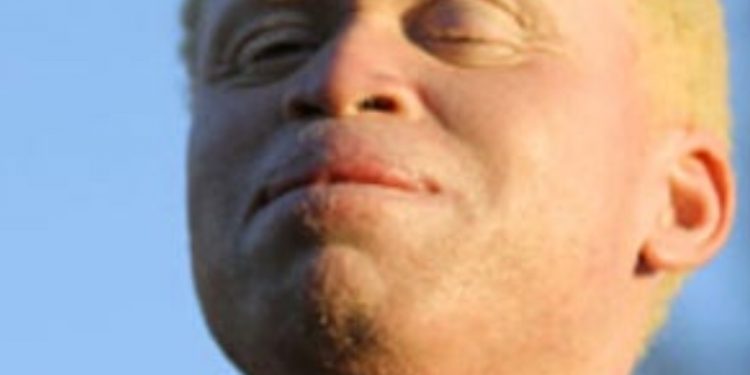By Ibrahim Waliat
Albinism is a genetic condition where people are born without the usual pigment (color) in their bodies.
Their bodies aren’t able to make a normal amount of melanin, the chemical that is responsible for eye, skin, and hair color. So most people with albinism have very pale skin, hair, and eyes.
Apart from the vision problems associated with all Albinos and the tendency for them to have damaged skin since they lack melanin pigment that helps to absorb the ultraviolet (UV) light, they are stigmatized and discriminated against in many parts of the world.
In Southern Nigeria, which constitutes the South East, South-South, and South West geopolitical zones of the country, the plight of Albinos varies from one zone and culture to another.
The Yorubas call an Albino Afin, while it is known as Anyali or Anyabeke in the Igbo language.
And the state or quality of being an albino is referred to as Albinism.
An insight I have often heard though, not scientifically proven is that Albinos should avoid taking salt in their meals to improve their pigment. Hence, the popular saying in Yoruba “Afin ojeyo ako isu niije,” (Albinos don’t eat salt that is why they’d rather eat a certain specie of yam that needs no salt).
However, issues relating to salt and Albinism are a complete myth.
There is no biological or medical reason to suggest that salt affects albinos in any way. In fact, not taking salt affects the health of Albinos.
The Yorubas in South West Nigeria in their mythology believe that Obatala, an Orisa (god) created the Albinos.
Obatala is known as Orisa–nla or agbalagba (the old one), the father of all other gods and creator of mankind.
It is interesting to know that people living with albinism see the same way in the afternoon as they see in the morning or in the evening.
A lot of people believe that persons with albinism do not see during afternoons; this is also a myth.
The simple reason for this myth is the lack of melanin in the skin.
At the same time, people with albinism have also been ostracised and even killed for exactly the opposite reason, because they are presumed to be cursed and bring bad luck.
The persecution of people with albinism takes place mostly in Sub-Saharan African communities, especially among East Africans.
Some witch doctors have been known to use albinos’ body parts, especially their hair as ingredients in magical portions to make people rich. It is sad to note that presently Albinos; due to how society treats them, are filled with fear.
This fear manifests in workplaces, in fact, some organizations don’t employ them even though they are qualified.
According to Mr. Jake Epelle, a member of the Albino Foundation, 99. 9% of Albinos are denied employment in Nigeria and this is worst in the Military and paramilitary forces.
The creation story of the Yoruba says that Obatala created human beings out of clay when he had finished molding their forms, he would give them to Olodumare ( the almighty God) who would blow the breath of life into them.
One day, however, Obatala went drinking and got drunk, and in that state, he created the Albino.
In memory of the day, the worshippers of Obatala are forbidden to drink palm wine, and afflicted people like albinos, the hunchback, the blind, dwarfs, and cripples are considered to be especially sacred to the god and are given positions of some importance in the shrine.
The Albinos are regarded as his own favorite with a special place in his household that no one else can fill.
According to an indigene of Ogere, a town in Ogun State (South West of Nigeria), they are regarded as Kings and therefore do not bow to other gods, not even kings.
Other myths in Yorubaland surrounding the birth of Albinos include the following: having sexual intercourse with a woman during her menstrual period may result in the birth of Albino, when a woman becomes pregnant as a result of sexual intercourse under the scorching sun, she is likely to give birth to Albino, and a pregnant woman who makes jest of an Albino will eventually give birth to one.
1,390 total views, 3 views today




